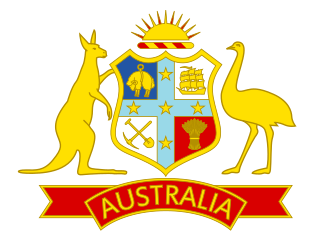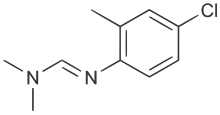Capital punishment, also known as the death penalty, is a government-sanctioned practice whereby a person is killed by the state as a punishment for a crime. The sentence that someone be punished in such a manner is referred to as a death sentence, whereas the act of carrying out the sentence is known as an execution. Crimes that are punishable by death are known as capital crimes or capital offences, and they commonly include offences such as murder, mass murder, terrorism, treason, espionage, offenses against the State, such as attempting to overthrow government, piracy, drug trafficking, war crimes, crimes against humanity and genocide, but may include a wide range of offences depending on a country. Etymologically, the term capital in this context alluded to execution by beheading.
Genocide is intentional action to destroy a people in whole or in part. The hybrid word "genocide" is a combination of the Greek word γένος and the Latin suffix -caedo. The United Nations Genocide Convention, which was established in 1948, defines genocide as "acts committed with intent to destroy, in whole or in part, a national, ethnic, racial or religious group".

Human rights are "the basic rights and freedoms to which all humans are entitled" Examples of rights and freedoms which are often thought of as human rights include civil and political rights, such as the right to life, liberty, and property, freedom of expression, pursuit of happiness and equality before the law; and social, cultural and economic rights, including the right to participate in science and culture, the right to work, and the right to education.
All human beings are born free and equal in dignity and rights. They are endowed with reason and conscience and should act towards one another in a spirit of brotherhood.

The International Criminal Court is an intergovernmental organization and international tribunal that sits in The Hague in the Netherlands. The ICC has the jurisdiction to prosecute individuals for the international crimes of genocide, crimes against humanity, war crimes, and crimes of aggression. The ICC is intended to complement existing national judicial systems and it may therefore exercise its jurisdiction only when certain conditions are met, such as when national courts are unwilling or unable to prosecute criminals or when the United Nations Security Council or individual states refer situations to the Court. The ICC began functioning on 1 July 2002, the date that the Rome Statute entered into force. The Rome Statute is a multilateral treaty which serves as the ICC's foundational and governing document. States which become party to the Rome Statute, for example by ratifying it, become member states of the ICC. As of March 2019, there are 124 ICC member states.

The International Court of Justice, abbreviated as ICJ, is the principal judicial organ of the United Nations (UN). It settles legal disputes between member states and gives advisory opinions to authorized UN organs and specialized agencies. It comprises a panel of 15 judges elected by the General Assembly and Security Council for nine-year terms. It is seated in the Peace Palace in The Hague, Netherlands.

Terrorism is, in the broadest sense, the use of intentionally indiscriminate violence as a means to create terror among masses of people; or fear to achieve a religious or political aim. It is used in this regard primarily to refer to violence during peacetime or in war against non-combatants. The terms "terrorist" and "terrorism" originated during the French Revolution of the late 18th century but gained mainstream popularity in the 1970s in news reports and books covering the conflicts in Northern Ireland, the Basque Country and Palestine. The increased use of suicide attacks from the 1980s onwards was typified by the September 11 attacks in New York City and Washington, D.C. in 2001.

The United Nations (UN) is an intergovernmental organization that was tasked to maintain international peace and security, develop friendly relations among nations, achieve international co-operation and be a centre for harmonizing the actions of nations. The headquarters of the UN is in Manhattan, New York City, and is subject to extraterritoriality. Further main offices are situated in Geneva, Nairobi, and Vienna. The organization is financed by assessed and voluntary contributions from its member states. Its objectives include maintaining international peace and security, protecting human rights, delivering humanitarian aid, promoting sustainable development and upholding international law. The UN is the largest, most familiar, most internationally represented and most powerful intergovernmental organization in the world. In 24 October 1945, at the end of World War II, the organization was established with the aim of preventing future wars. At its founding, the UN had 51 member states; there are now 193. The UN is the successor of the ineffective League of Nations.

The Organisation of Islamic Cooperation is an international organization founded in 1969, consisting of 57 member states, with a collective population of over 1.8 billion as of 2015 with 40 countries being Muslim-majority countries. The organisation states that it is "the collective voice of the Muslim world" and works to "safeguard and protect the interests of the Muslim world in the spirit of promoting international peace and harmony".

Crimes against humanity are certain acts that are deliberately committed as part of a widespread or systematic attack directed against any civilian or an identifiable part of a civilian population. The first prosecution for crimes against humanity took place at the Nuremberg trials. Crimes against humanity have since been prosecuted by other international courts as well as in domestic prosecutions. The law of crimes against humanity has primarily developed through the evolution of customary international law. Crimes against humanity are not codified in an international convention, although there is currently an international effort to establish such a treaty, led by the Crimes Against Humanity Initiative.

The International Union for Conservation of Nature is an international organization working in the field of nature conservation and sustainable use of natural resources. It is involved in data gathering and analysis, research, field projects, advocacy, and education. IUCN's mission is to "influence, encourage and assist societies throughout the world to conserve nature and to ensure that any use of natural resources is equitable and ecologically sustainable".
International human rights law (IHRL) is the body of international law designed to promote human rights on social, regional, and domestic levels. As a form of international law, international human rights law are primarily made up of treaties, agreements between sovereign states intended to have binding legal effect between the parties that have agreed to them; and customary international law. Other international human rights instruments, while not legally binding, contribute to the implementation, understanding and development of international human rights law and have been recognized as a source of political obligation.

The Australia national cricket team is the joint oldest team in Test cricket history, having played in the first ever Test match in 1877. The team also plays One-Day International (ODI) and Twenty20 International (T20I) cricket, participating in both the first ODI, against England in the 1970–71 season and the first T20I, against New Zealand in the 2004–05 season, winning both games. The team draws its players from teams playing in the Australian domestic competitions – the Sheffield Shield, the Australian domestic limited-overs cricket tournament and the Big Bash League.

The India national cricket team, also known as Team India and Men in Blue, is governed by the Board of Control for Cricket in India (BCCI), and is a full member of the International Cricket Council (ICC) with Test, One Day International (ODI) and Twenty20 International (T20I) status.

Dieldrin is an organochloride originally produced in 1948 by J. Hyman & Co, Denver, as an insecticide. Dieldrin is closely related to aldrin, which reacts further to form dieldrin. Aldrin is not toxic to insects; it is oxidized in the insect to form dieldrin which is the active compound. Both dieldrin and aldrin are named after the Diels-Alder reaction which is used to form aldrin from a mixture of norbornadiene and hexachlorocyclopentadiene.

The West Indies cricket team, traditionally known as the Windies, is a multi-national cricket team representing the Anglophone Caribbean region and administered by Cricket West Indies. The players on this composite team are selected from a chain of fifteen Caribbean territories, which are parts of several different countries and dependencies. As of 24 June 2018, the West Indian cricket team is ranked ninth in the world in Tests, ninth in ODIs and seventh in T20Is in the official ICC rankings.

4-Chloro-o-toluidine (4-COT, 4-chloro-2-methylaniline) is the organic compound with the formula CH3C6H3Cl(NH2). It is a colorless solid. The compound is produced as an intermediate to the pesticide chlordimeform and a precursor to some azo dyes. Production has declined after it was shown to be highly carcinogenic.

The Rotterdam Convention is a multilateral treaty to promote shared responsibilities in relation to importation of hazardous chemicals. The convention promotes open exchange of information and calls on exporters of hazardous chemicals to use proper labeling, include directions on safe handling, and inform purchasers of any known restrictions or bans. Signatory nations can decide whether to allow or ban the importation of chemicals listed in the treaty, and exporting countries are obliged to make sure that producers within their jurisdiction comply.

The United Nations Educational, Scientific and Cultural Organization is a specialized agency of the United Nations (UN) based in Paris. Its declared purpose is to contribute to peace and security by promoting international collaboration through educational, scientific, and cultural reforms in order to increase universal respect for justice, the rule of law, and human rights along with fundamental freedom proclaimed in the United Nations Charter. It is the successor of the League of Nations' International Committee on Intellectual Cooperation.
The molecular formula C10H13ClN2 may refer to:

The 2016 Uri attack was an attack by four heavily armed militants on 18 September 2016, near the town of Uri in the Indian administered state of Jammu and Kashmir. It was reported as "the deadliest attack on security forces in Kashmir in two decades". The militant group Jaish-e-Mohammed was blamed by India of being involved in the planning and execution of the attack. At the time of the attack, the Kashmir Valley region was at the centre of unrest.



















